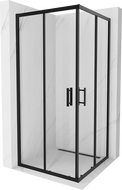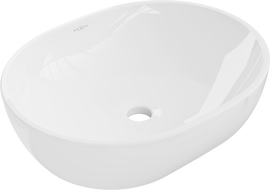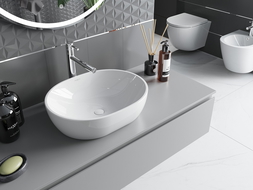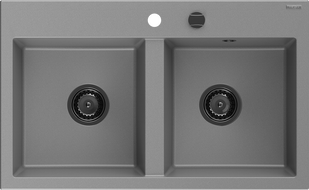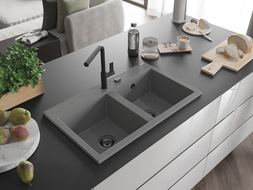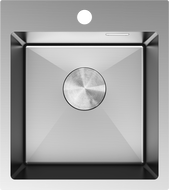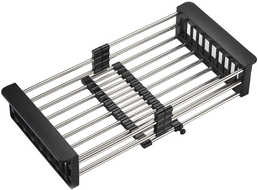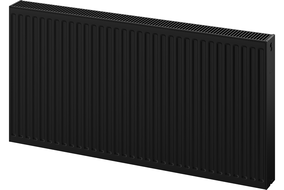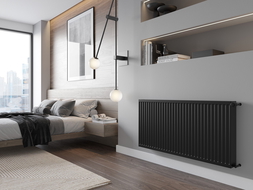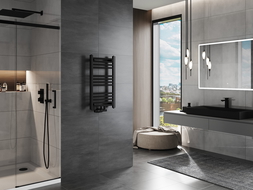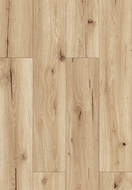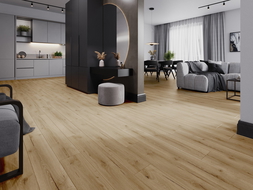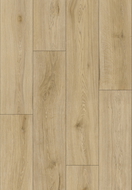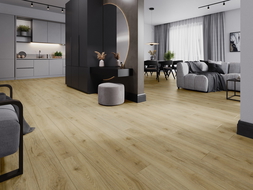
Most of us have probably heard the distinctive gurgling in the sink at least once in our lives. Usually right after, it turns out that the water remains in the sink basin and doesn't want to flow out. Simultaneously with the gurgling, unpleasant smells might also arise from the drain. This is a sure sign that the condition of the plumbing should be checked. Most likely, the drain is clogged and this is the cause of the gurgling.
Where does the gurgling noise in the pipes come from?
If the gurgling occurs shortly after using the sink, it is probably a sign that it is about to get clogged. This isn't too large of an issue since usually only the section between the sink and the plumbing riser is clogged. However, if the gurgling problem appears independently of using the sink, it could indicate a blockage in the plumbing riser, which is a much more serious situation.
If the syphon is working correctly yet the gurgling in the sink persists, coupled with an unpleasant smell and dirty water coming up into the sink from the drain, it means it's time to call a professional. Unless you happen to have a plumbing snake at home and know how to use it.
Eliminate gurgling and unpleasant smells
The most common cause of gurgling and unpleasant smells is simply a clogged sink. Fortunately, it's a problem that can be tackled using tried and tested home methods. The main cause of blocked sink drains is food scraps getting into them during meal preparation and dishwashing. Therefore, it's important to remove all large pieces of food before putting plates into the sink.
A clogged sink can be dealt with using a rubber plunger. Rhythmic pressing causes a vacuum in the pipe, pushing any blockage towards the wider part of the drain. If that doesn't work, pour half a cup of baking soda into the drain hole and follow it with a cup of vinegar. Afterwards, it’s enough to rinse the drain with a large amount of water, preferably hot.
Is it the air admittance valve?
If the previously mentioned methods do not yield the desired result, the cause of the gurgling might be the air admittance valve. Sometimes, along with disturbing noises, water can be sucked out of the trap and an unpleasant smell may enter the kitchen straight from the drainage system. Installing an air admittance device might be a solution to this problem. The air admittance valve is installed above the sink and is designed to allow air into the plumbing riser. This maintains the proper pressure throughout the entire drainage system.
The air admittance device prevents vacuum formation in the plumbing riser. Such a phenomenon can occur due to intensive water discharge, not necessarily in the sink. The aerator allows for pressure regulation in the pipes. If a blockage occurs in the air admittance device, it can be rinsed with a strong stream of water or a pipe cleaning solution can be poured into it.
How to prevent gurgling in the pipes?
An empty pipe can be a source of unpleasant smells and disturbing sounds. Therefore, it is advisable to always ensure there is water in the drain. In addition, regular cleaning of not only the sink but also the drain is necessary. The drain should occasionally be flushed with a pipe cleaning solution and hot water. The flowing water will remove any lingering food scraps and potential deposits appearing on the syphon walls. The same approach should be applied to the drains in the shower and bathroom sink.
If the gurgling involves pipes located in farther parts of the building, it's likely the entire riser is blocked and you won't be able to fix it yourself. To prevent unpleasant smells from entering the apartment, the drain should be plugged with a stopper. To unblock the pipe in the building, it's necessary to call a plumber who will have the appropriate equipment to clear the blocked pipes.

